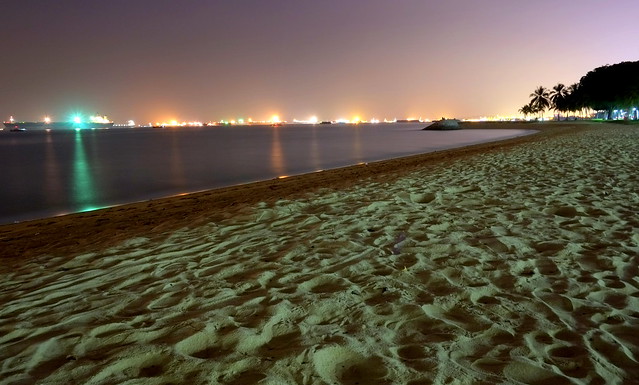Posting my essay for my final year research project on my blog was
not something that I had minded to do. However, after encouragements from my
professor to submit my essay for publication in my school’s law journal, I have
decided to do so through the medium of my blog instead, probably much to the
disappointment of my professor. There are a few reasons for doing so: apart
from me being lazy to work on my essay again in the midst of my Bar course, one
reason being the perceived ‘liberty’ for me to express myself without further
recourse to academic language in having to amend what I had sought to express
(whether rightly or not). At heart of my essay is something intrinsically
related to my understanding of the Christian faith: the power of the Holy
Spirit to enable us to live a Christ-like life. The approach of the essay probably stemmed from this passage in Romans 8:1-4: "There is therefore now no condemnation to them which are in Christ Jesus, who walk not after the flesh, but after the Spirit. For the law of the Spirit of life in Christ Jesus hath made me free from the law of sin and death. For what the law could not do, in that it was weak through the flesh, God sending his own Son in the likeness of sinful flesh, and for sin, condemned sin in the flesh: That the righteousness of the law might be fulfilled in us, who walk not after the flesh, but after the Spirit." Having had to express what is
so deeply devotional and personal to me in academic language during my time of
writing was exceptionally challenging – in some sense an unnecessary baggage to
me. By no means am I trying to diminish the value and vast effort of academics
and theologians in their research of Biblical law, and in this context, on
Paul’s epistles; on the contrary, I have been greatly enlightened and enriched
by their writings, and I stand indebted to their works. However, if what I am
writing is fundamentally devotionally-related, whereby my chief purpose
concerns the working of the Holy Spirit in our lives to enable us to walk in
the dictates and nature of God’s laws in our everyday life, then it is my view
that any further addition or amendments to it should shy away from an academic
orientation. Besides, publishing something on the blog probably makes it more accessible
to the world at large than a law journal.
My initial motivation for writing on Paul’s use of the Decalogue stems from
the influence of his epistles (or what are classified as his epistles in the
Bible) in my life. As a teenager stepping out of a childhood straddled with
suicidal tendencies and struggling with esteem and self-pity issues at that
time (all these while as a Christian), it was through Paul’s epistles that God
reached out to me, opening my eyes to see a purpose in my life. Thus, Paul’s
writings have a huge influence in shaping my perspectives towards my Christian
faith and life as a whole. Given the aforesaid, I seized the opportunity to
write about Paul’s usage of the Decalogue in his epistles. Apart from my affinity
for Paul’s writings, I also chose the question for the following reason. The
Ten Commandments were something given to the Israelites (notwithstanding its
seemingly universal application) and thus occupy a unique position in the Israelite’s
culture and tradition, particularly as God’s chosen people; this, however, did
not prevent Paul from using the Ten Commandments in his epistles written to the
Gentiles (both explicitly and implicitly). This is intriguing because Paul has
called himself a “Hebrew of Hebrews; as touching the law, a Pharisee; touching
the righteousness which is in the law, blameless”. Given his background from the “straitest sect”
of the Pharisee, and upbringing in the law at the feet of Gamaliel, I wanted to
explore and write about his use of the Ten Commandments to the Gentile audience
despite his identification with the Jewish culture and heritage.
Abstract of the essay: This essay seeks to examine Paul’s usage of
the Decalogue in his epistles. It does so by starting with the explicit
references to the Decalogue in Romans, and subsequently working towards
implicit references in passages bearing resemblance in Galatians and 1 & 2
Corinthians. Paul’s usage and understanding of the Decalogue reflect both the
influence of Hellenistic-Judaism and his interpretation of the history of
Israel. Furthermore, its usage is also located within Paul’s thoughts on the
relationships between the Law and the Spirit, the flesh and the Spirit; and the
fulfilment of the Law. Using the Decalogue, Paul paints the plight of the
inability to fulfil the Law due to the weakness of the flesh, and offers the
solution of fulfilling the righteousness of the Law through the Spirit in
Christ.
If I have failed to put you off reading it with the mass of words
above, I hope you will find the essay of some use. The essay can be accessed
via this link: “The Usage of the Decalogue by Paul the Apostle in His Epistles”.
However, you ought to bear in mind the following criticism by my examiners: “the
project loses its way a little and its second half does not quite draw full
conclusions on the differences between different passages and contexts.”
